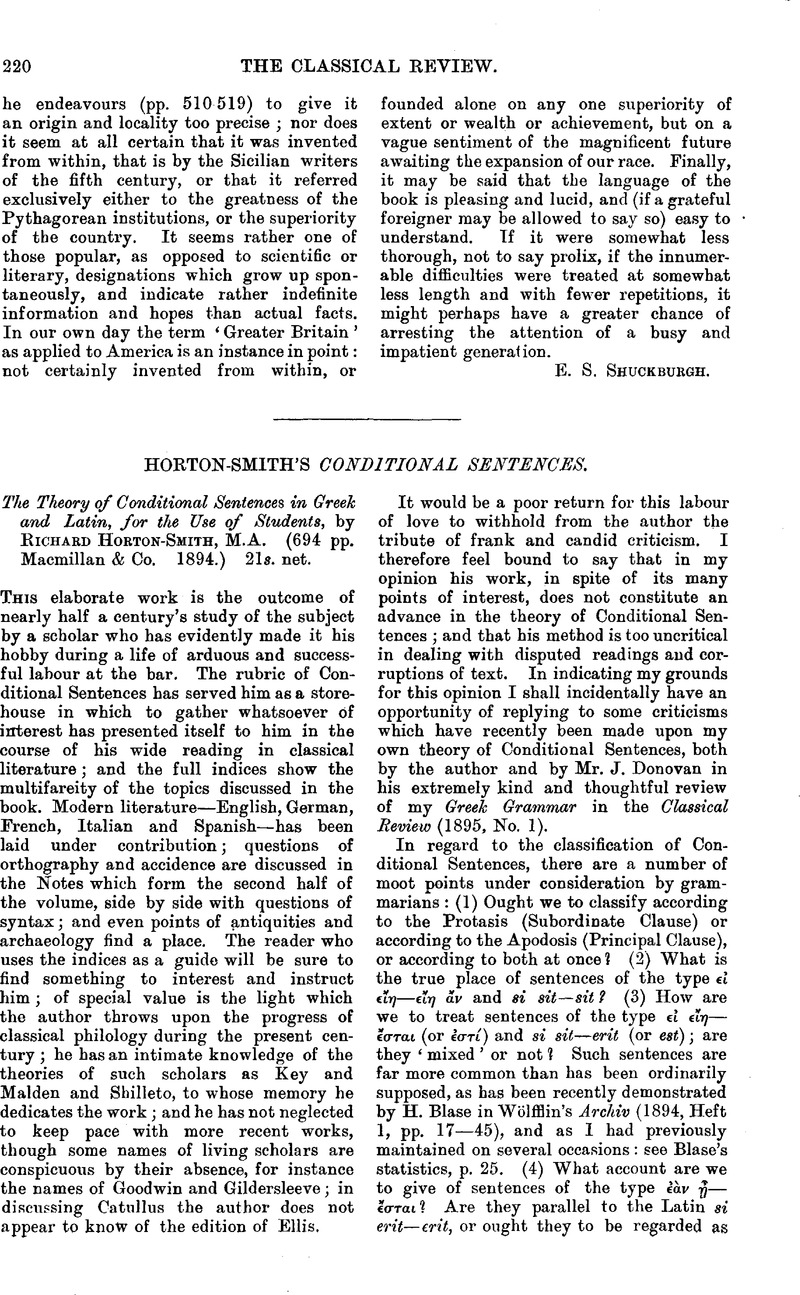Article contents
Horton-Smith's Conditional Sentences - The Theory of Conditional Sentences in Greek and Latin, for the Use of Students, by Richard Horton-Smith, M.A. (694 pp. Macmillan & Co.1894.) 21s. net.
Published online by Cambridge University Press: 27 October 2009
Abstract

- Type
- Reviews
- Information
- Copyright
- Copyright © The Classical Association 1895
References
page 222 note 1 Mr. Donovan's other criticisms on my Conditional Sentences are only verbal; he does not like my way of defining the two main classes by saying that the one class does and the other does not speak of what would be or would have been; but how am I to express the distinction otherwise? I cannot speak of fulfilment and non-fulfilment in the Apodosis, because there are sentences like 'even if A were B, C would be D,' in which there is no implication that C is not D; see further in Goodwin M. T. § 412. In regard to what he says about a sentence like ‘if it were desirable we might give proof,’ Mr. Donovan appears to have overlooked my § 356, where these expressions are specially dealt with.—What Mr. Donovan calls ‘a more serious defect still’ will, I think, be found to be merely a question of wording; he thinks I ought to have spoken not of Protases implying ‘ what is not, ’ but rather of Protases implying ‘what is assumed not to be.,’ Had I adopted this language, it would simply have complicated my statement and I fear bewildered my readers. Of course when a condition is spoken of as unfulfilled, it need not be so actually; it is enough that it should be assumed to be so; but I do not think it necessary to say so every time. When Cicero says si amor naturalis esset he means that love (in this sense) is not natural (in the philosophic sense). As to εἰ ἒχ∘ι not referring to future time, Mr. Donovan surely refines somewhat: when Cicero says si Phalarim crudelem tyrannum vir bonus spoliare possit, nonne faciat, it is no difficulty to me that Phalaris had been dead a long time; we may translate ‘ if a good man were to be able to despoil, a cruel tyrant like Phalaris.’—I cannot part from Mr. Donovan without expressing my warm thanks for many points in his review, some of which 1 hope to make use of on a future occasion.
page 222 note 2 I would call Mr. Horton-Smith's attention to the fact that the had in ‘if he had done it’ is historically a Subjunctive, not an Indicative.
- 1
- Cited by


